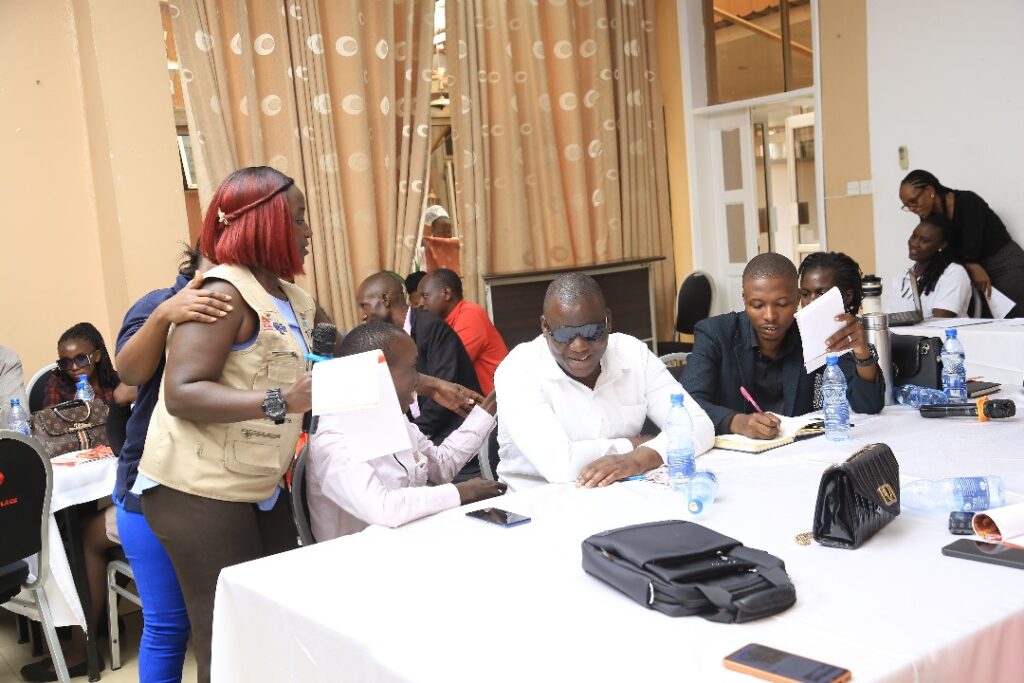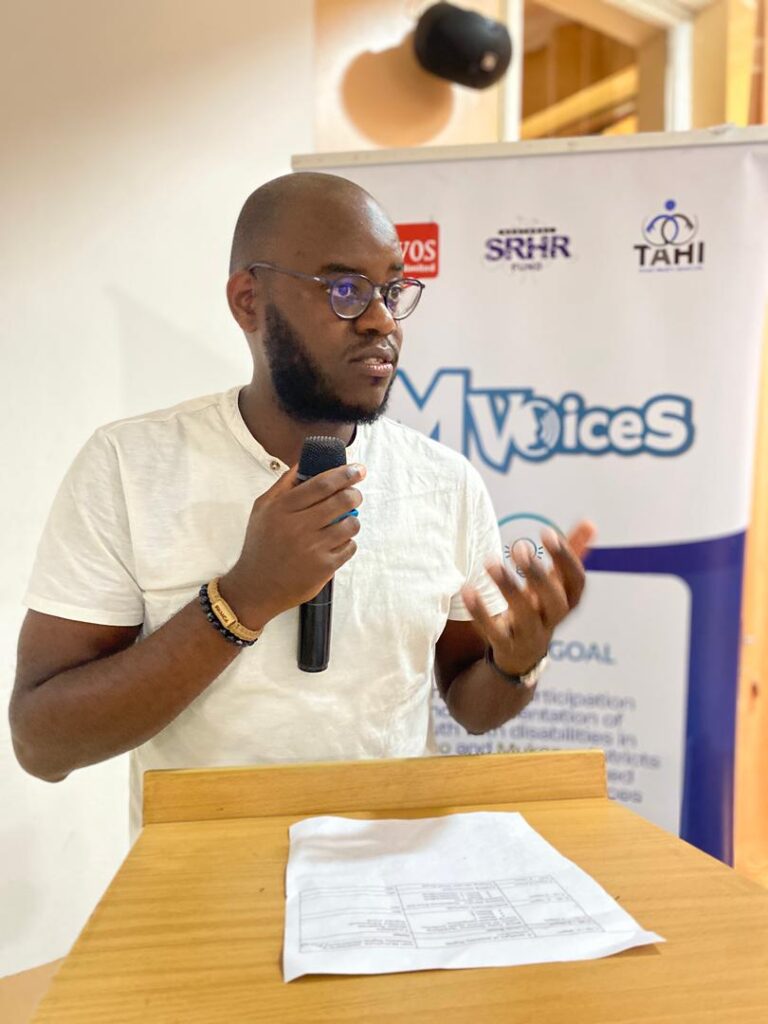
TAHI successfully convened the National M-Voices Disability Inclusion Summit on 24 October 2025 in Kampala. Supported by HIVOS through the SRHR Regional Fund, the one-day high-level forum brought together 160 participants, including government officials, policymakers, civil society, disability rights advocates, and young people with disabilities.
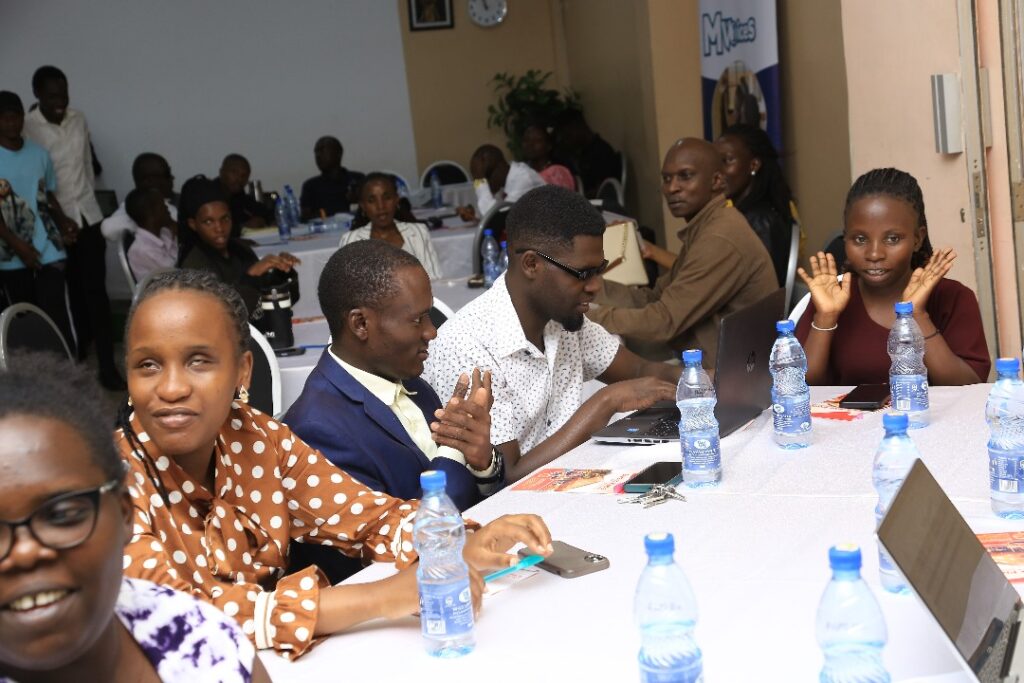
Held under the theme “Building Inclusive Health Systems That Leave No Person with a Disability Behind,” the summit created a national platform to spotlight persistent barriers affecting persons with disabilities in accessing health services and participating in policy and decision-making.
Setting the Tone for Inclusion
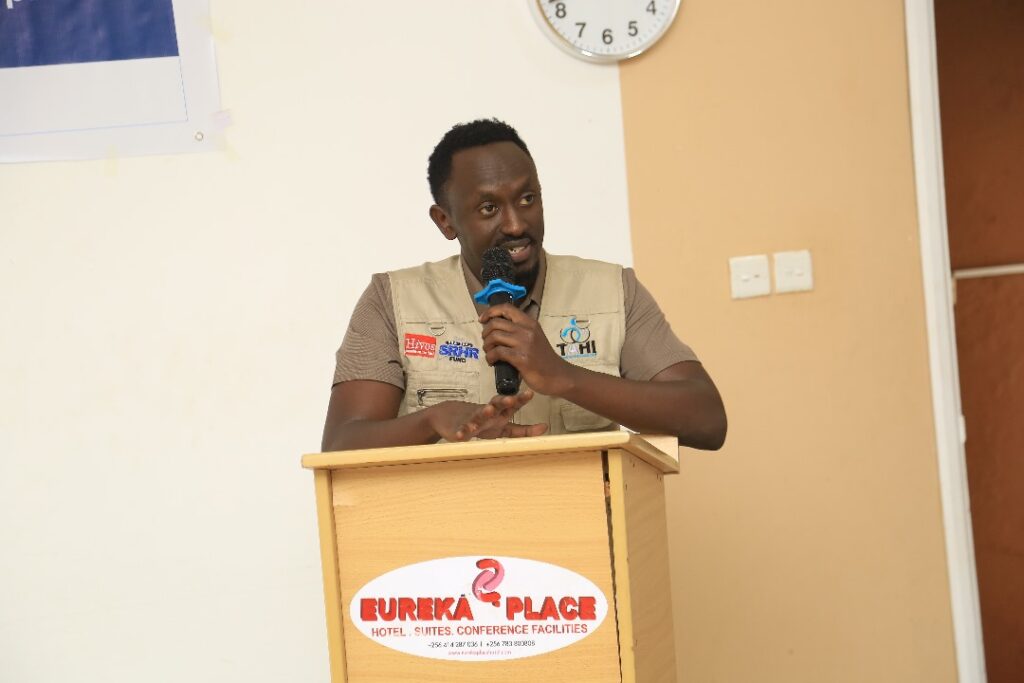
In his opening remarks, Charles Tumwebaze, Executive Director of TAHI, emphasized the urgent need for intentional disability inclusion within Uganda’s health system. He acknowledged progress made but highlighted continuing gaps, such as the lack of sign language interpreters in most health facilities that limit access to essential services.
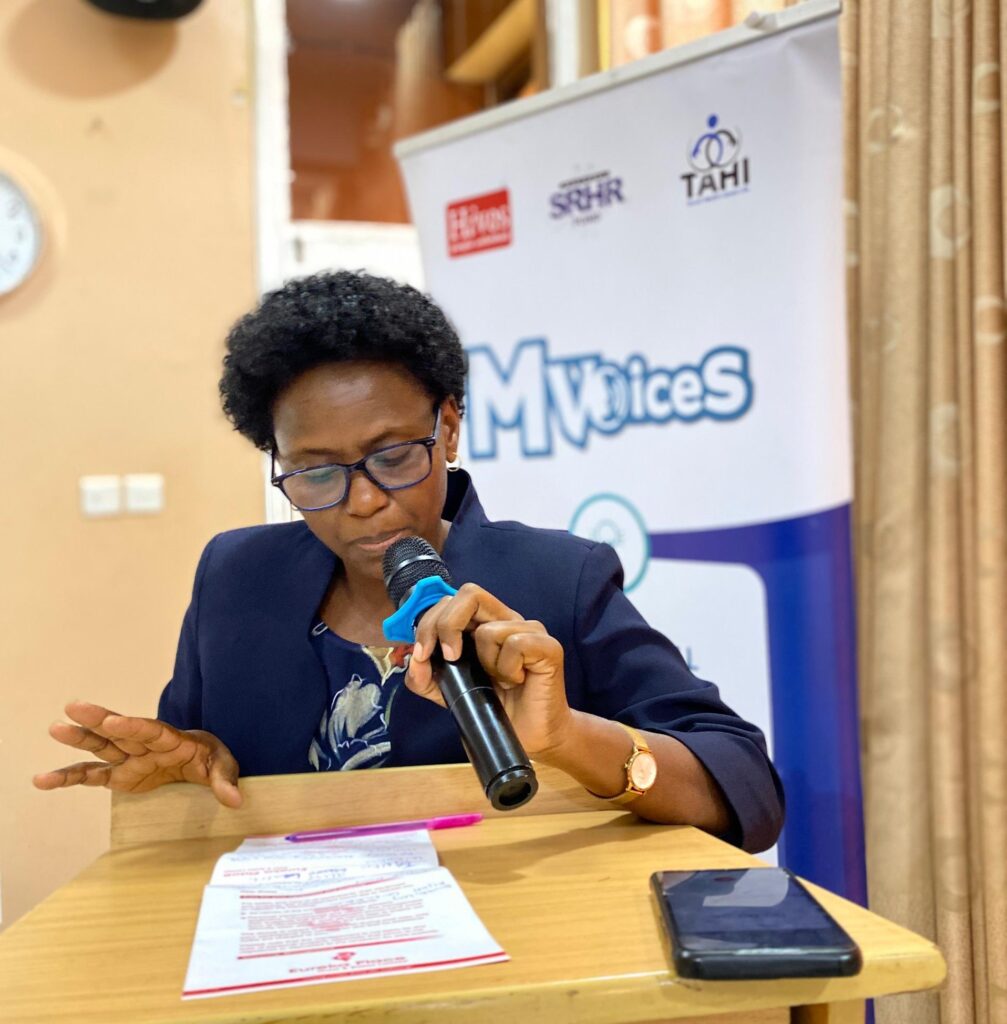
Representing the Ministry of Health, Dr. Irene Mwenyango, Assistant Commissioner for Adolescent and School Health, reaffirmed the Ministry’s commitment to strengthening inclusive health services. She noted ongoing efforts to build the capacity of health workers and explore accessible communication tools such as Braille, while calling on health workers to learn basic sign language to improve service delivery.
Key Dialogue: Strengthening Inclusive Health Systems
Experts and stakeholders facilitated rich discussions on the current state of disability inclusion in Uganda.
Dr. Ochorin Jimmy, a Senior Medical Officer at the Ministry of Health, highlighted efforts to create community health structures that better respond to the needs of persons with disabilities.
A high-level panel, moderated by Myleen Kyomuhangi (Tunaweza Foundation), shared insights from district health officers, disability advocates, and civil society.
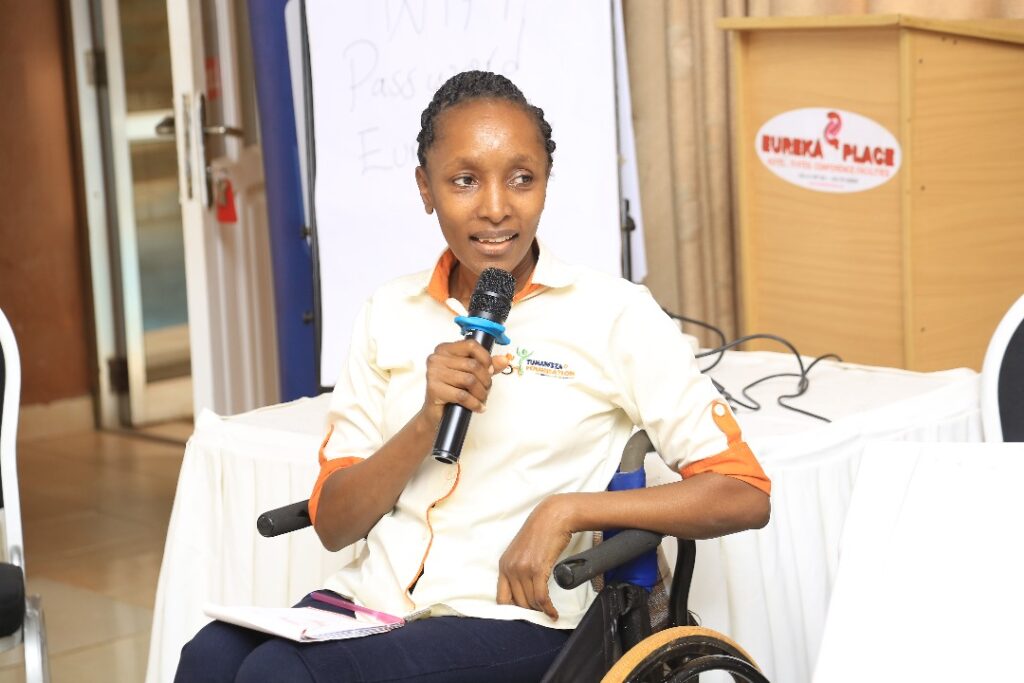
Among the notable voices was Kobusingye Catherine (TAHI Disability Consortium), who underscored persistent accessibility challenges—from absence of Braille materials to inaccessible infrastructure and negative attitudes by some health workers.
Robert Nkwangu, Executive Director of the Uganda National Association of the Deaf, emphasized the urgent need for qualified sign language interpreters in health facilities and advocated for tax-free assistive devices to improve affordability for persons with disabilities.
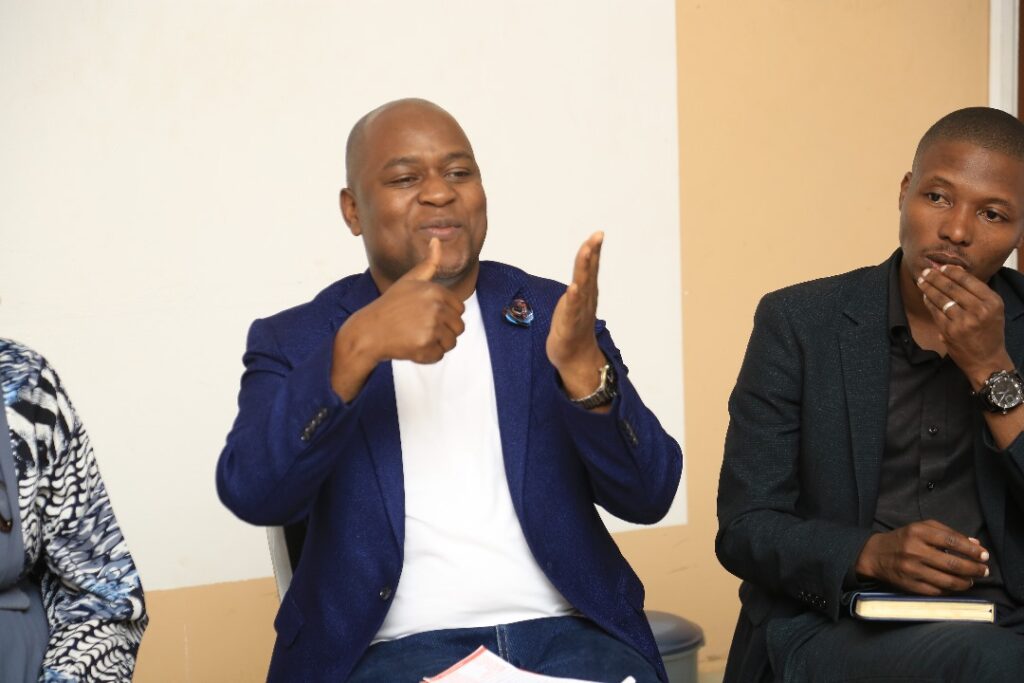
The Guest of Honour, Hon. Kabusu Moses, reaffirmed his commitment to championing the rights of persons with disabilities in Parliament, particularly advocating for an inclusive national budget that responds to the needs of young people with disabilities.
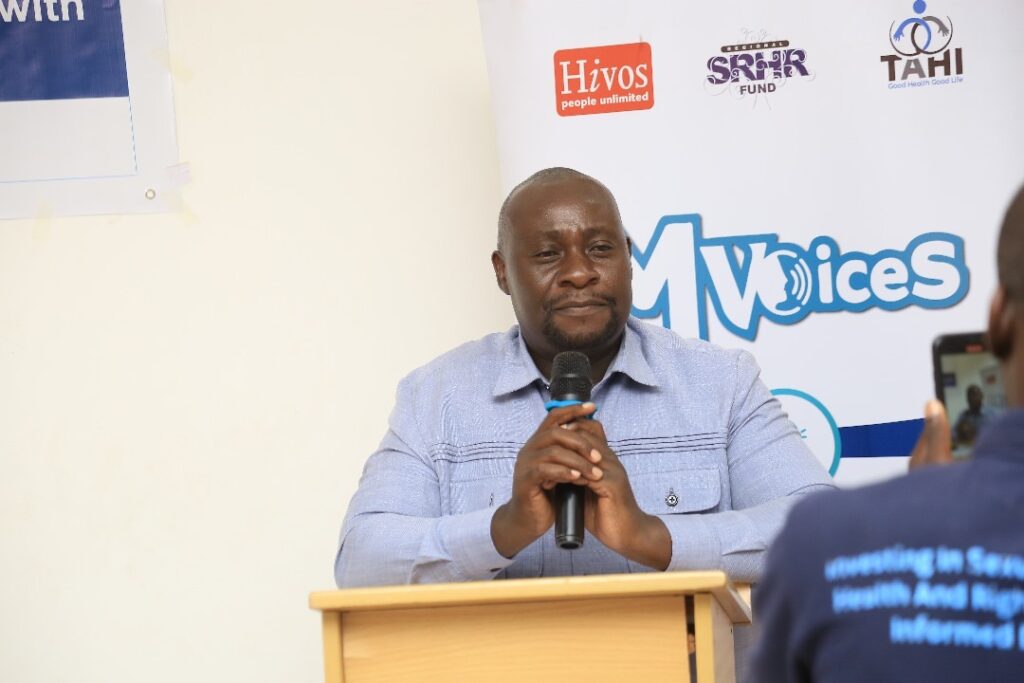
Commitments to Strengthen Disability Inclusion
The summit concluded with strong commitments from government leaders, civil society, youth-led networks, and development partners. Among the key pledges:
- Ministry of Health committed to promoting inclusive health services, strengthening cross-ministerial collaboration, and supporting the integration of Braille communication.
- The District Health Office of Mukono district pledged to ensure at least one trained sign language interpreter in every general hospital.
- Disability advocates committed to advancing accessibility standards, strengthening policy influence, and supporting community outreach.
- Members of Parliament, led by Hon. Moses Kabusu, pledged to support inclusive health systems and ensure new public infrastructure meets universal accessibility standards.
- TAHI reaffirmed its commitment to amplifying voices of young persons with disabilities and pushing for systemic change in policy and health service delivery.
